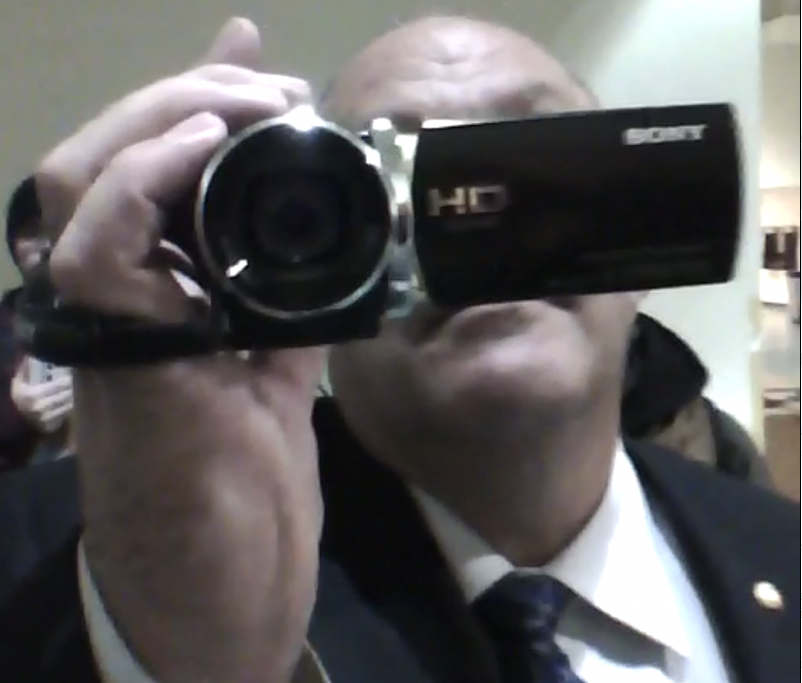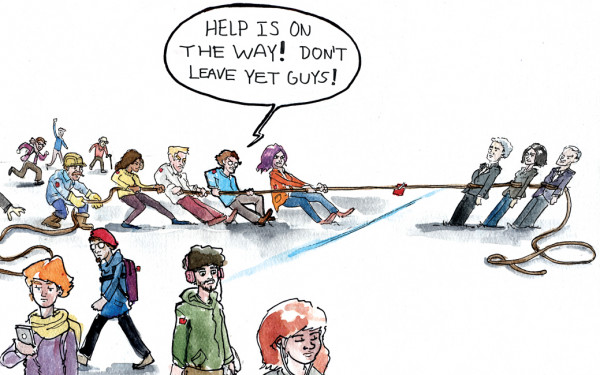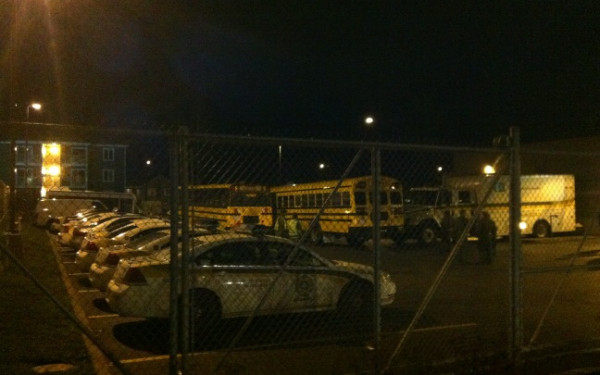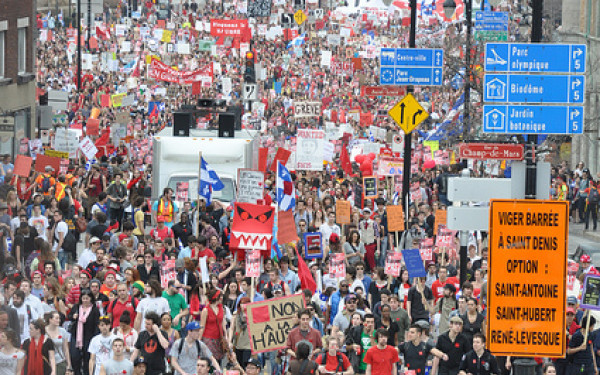Obstructing or Disrupting
Concordia Students Face Charges For Blocking Classrooms
Concordia students involved in blocking classes or buildings throughout the strike could be facing a number of charges under the university’s Code of Rights and Responsibilities.
On June 1, students taking part in strike actions began receiving emails from the university’s Office of Rights and Responsibilities informing them that a “confidential formal complaint” was being filed against them.
“[The student] is alleged to have blocked a classroom, during which an academic activity was disrupted, therefore, committing an offense pursuant to article 29 g. of the Code of Rights and Responsibilities,” reads a formal complaint made against a student by Jean Crevier, investigator with Concordia’s security department.
Numerous students have received multiple complaints under the same section of the code.
Article 29 g. of the code prohibits “obstruction or disruption of teaching, research, administration, study, student disciplinary procedures or other University activity.”
The code goes on to explain exceptions to this article.
“Peaceful picketing or other activity in any public space that does not impede access nor interfere with the activities in a class or meeting is an acceptable expression of dissent and shall not be considered an infraction of this article,” reads the code.
In response to an Access to Information request by The Link, the university revealed via email that the total number of charged students was 26—23 undergrads and three graduate students.
Several students have multiple charges against them, and the university reserves the right to charge more students if additional information comes to light.
According to the Office of Student Tribunals, it is “highly unlikely” that any hearings will take place before September. The Code allows for settlements before the scheduled hearing, based on the nature of the individual’s offense.
Those wishing to settle their charges may do so by contacting the CSU Advocacy Center.





_800_531_600_375_90_s_c1.jpg)

